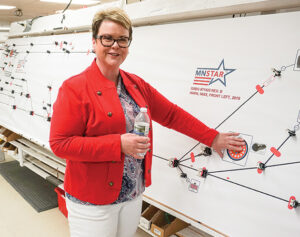When I talk with manufacturing executives and company owners, I’m struck by the idea that in this low-unemployment environment, workers no longer work for companies — companies work for the employees. With culture, engagement and compensation, companies are on a mission to ensure their employees love working for them. Companies that can achieve that goal — creating an atmosphere that draws and keeps employees — can win the workforce battle.
In the same way, because the pandemic has fundamentally upended major segments of our economy, supply chain expert Professor Willy Shih believes that suppliers no longer work for OEMs — OEMs work for their suppliers. In other words, companies that create long-lasting strategic partnerships with their suppliers can take a step toward winning the supply chain battle.
Many of our clients rely heavily on suppliers as they manufacture final products. Others supply larger companies with components. And many of our clients really play both roles. They manufacture inputs that are used by larger manufacturers, but they also rely on suppliers for parts or materials for their own products.
That’s why the Q&A with Dr. Shih, a leading national expert on supply chain issues, is relevant to all our readers. The Robert and Jane Cizik Professor of Management Practice in Business Administration at Harvard Business School, Dr. Shih regularly writes for — or is interviewed by — major national business media outlets, including the Wall Street Journal, Forbes, Harvard Business Review and Bloomberg Markets.
I first met Willy Shih decades ago. He was an executive at Silicon Graphics, and they were a great partner of ours when I was at Ciprico. He was different from a lot of executives in that, even then, he talked a lot about the importance of relationships and dependency on each other. That’s a theme you will read throughout the Q&A.
Dr. Shih’s career includes time with several major technology manufacturers — including IBM, Digital Equipment and Eastman Kodak. Because of that, he brings a wealth of experience to his professorship that is unusual in the academic world. His business experience gives him a practical and pragmatic approach in what he does and how he speaks. That style has him in high demand as the supply chain crisis continues. In recent weeks, Professor Shih has testified before the U.S.-China Economic and Security Review Commission as well as the House Foreign Affairs Committee.
The insights included in the Q&A run the spectrum — from the roots of the supply chain crisis and building partnerships with suppliers to how companies can use technology to take advantage of fundamental shifts in the economy. I hope you will enjoy reading it as much as I enjoyed asking Professor Shih the questions.
…
Featured story in the Fall 2022 issue of Enterprise Minnesota magazine.


